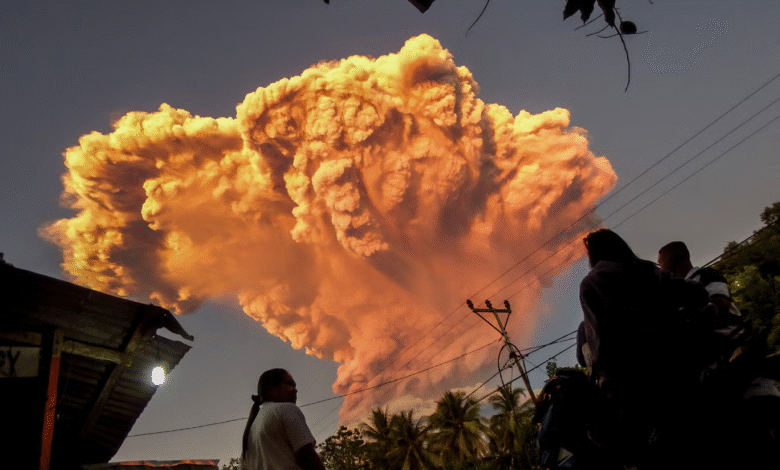
Authorities have advised people to stay at least six to seven kilometers away from the volcano to ensure their safety. Dozens of residents from villages closest to the eruption have evacuated their homes following the latest activity.
Indonesia’s volcanology agency reported that the Laki-Laki volcano in East Nusa Tenggara province erupted early Wednesday, sending a massive ash plume up to 10 kilometers (6 miles) into the sky and prompting authorities to raise the alert level to its highest status.
The Geological Agency confirmed that the eruption occurred at 1:35 a.m. Indonesia local time (18:35 GMT) and lasted approximately nine minutes. Earlier, the nearby Leutopia volcano had also erupted, spewing ash up to nine kilometers high.
The alert level was elevated late Tuesday after the agency recorded “extremely high volcanic activity” beginning Monday, according to Mohamed Wafid, head of the Geological Agency. He warned residents near the volcano to be vigilant for potential volcanic mudflows, especially during heavy rainfall.
Authorities advised people to stay at least six to seven kilometers away from the volcano to ensure their safety. Dozens of residents from villages closest to the eruption have evacuated their homes following the latest activity.
The Laki-Laki volcano has previously erupted in July and August, causing disruptions to air traffic, particularly affecting flights to and from the nearby island of Bali. Officials continue to monitor the volcano closely to mitigate potential hazards.
Disaster management teams are coordinating with local authorities to ensure the safety of residents, providing updates and guidance on evacuation routes and emergency measures.
The agency emphasized that ash clouds from the eruption could affect air quality and visibility, urging aviation authorities to monitor flight paths and issue necessary advisories to airlines.
Volcanic mudflows, known as lahars, remain a significant concern due to the risk posed by sudden rainfall in the area. Residents are urged to remain cautious and follow official safety instructions.
Authorities are also preparing shelters and emergency supplies for affected communities, prioritizing access to clean water, food, and medical aid for displaced families.
The Geological Agency continues to track seismic activity and ash emissions from Laki-Laki and nearby volcanoes to provide timely warnings and reduce the risk to lives and property.
Follow The Times Kuwait on
X, Instagram and Facebook for the latest news updates












